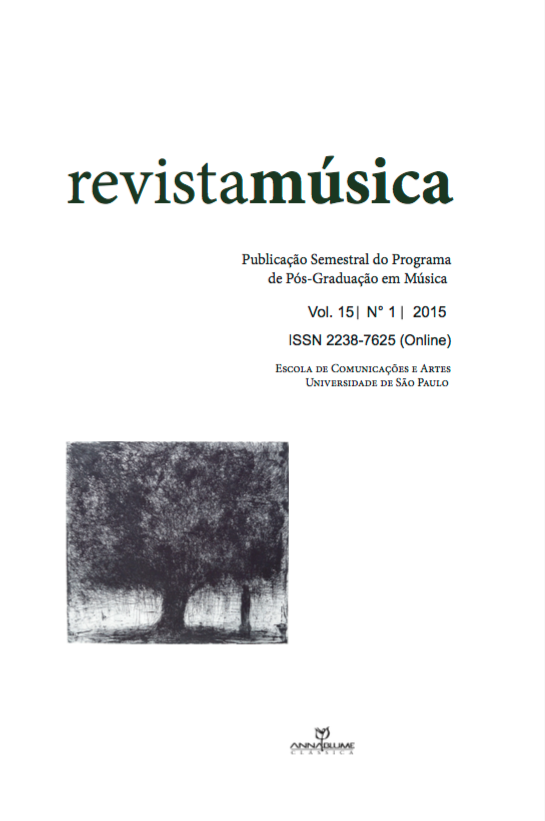The Sound of Phantasia in Motion: Musical Imagination from Aristotle to Zarlino
DOI:
https://doi.org/10.11606/rm.v15i1.114700Keywords:
Fantasia, Imagination, Improvisation, Mind, Sense perception, Zarlino, Aristotle, Della Barba, VarchiAbstract
Ambiguously poised between composition and improvisation, works designated as fantasia in the sixteenth century thrived on the imaginative power of virtuoso performers. Or so the term would seem to suggest: it is not immediately clear in what sense this music should be understood and singled out as the product of the imagination. Isn’t music, any kind of music, the product of the imagination? What idea of imagination was this particular kind of music meant to represent? Drawing on the Aristotelian doctrine of the internal senses, this essay explores the relationship between fantasia as a musical process and sixteenth-century notions of fantasia as a mental process. From our vantage point in history, fantasia offers a rare opportunity to observe a cultural and musical practice aimed at translating the workings of the mind into a sensible object, which the perceiving subject can then (re)experience as a representation of his own inner life, in the way he himself imagines it.Downloads
Download data is not yet available.
Downloads
Published
2015-04-26
Issue
Section
Articles
License
Copyright (c) 2015 Giuseppe Gerbino

This work is licensed under a Creative Commons Attribution-NonCommercial-ShareAlike 4.0 International License.
Autores que publicam nesta revista concordam com os seguintes termos:
- Autores mantém os direitos autorais e concedem à revista o direito de primeira publicação, com o trabalho simultaneamente licenciado sob a CC Attribution-NonCommercial-ShareAlike 4.0 que permite o compartilhamento do trabalho com reconhecimento da autoria e publicação inicial nesta revista.
- Autores têm autorização para assumir contratos adicionais separadamente, para distribuição não-exclusiva da versão do trabalho publicada nesta revista (ex.: publicar em repositório institucional ou como capítulo de livro), com reconhecimento de autoria e publicação inicial nesta revista.
- Autores têm permissão e são estimulados a publicar e distribuir seu trabalho online (ex.: em repositórios institucionais ou na sua página pessoal) a qualquer ponto antes ou durante o processo editorial, já que isso pode gerar alterações produtivas, bem como aumentar o impacto e a citação do trabalho publicado (Veja O Efeito do Acesso Livre).
How to Cite
The Sound of Phantasia in Motion: Musical Imagination from Aristotle to Zarlino. (2015). Revista Música, 15(1), 19-48. https://doi.org/10.11606/rm.v15i1.114700


